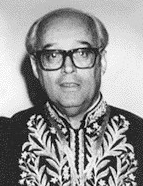

More specifically, his analytical approach to the history of historiography in Brazil was grounded in assessments of foreign archives that housed sources on Brazil's history, as well as in the libraries and research centres he visited during his international travels in the 1940s. Rodrigues saw Brazil as "lagging behind" countries where historical thought and its corresponding empirical research were "more advanced"; this was perhaps the first of the dichotomies that would henceforth structure his thinking: he spoke of "true" and "false historiography," supposedly classifiable by "technical" and "epistemological" criteria, and of "progressive historians" (among whom his favourites were Capistrano de Abreu and Gilberto Freyre) as opposed to "reactionary historians." With regard more specifically to his theory of a History of Brazil (formulated in the 1949 book), Rodrigues was influenced by authors from the early 20th century (mainly Americans and Germans), such as Eduard Meyer, Wilhelm Bauer, Langlois & Seignobos, Zacarias García Villada, Horner Hockett, and Frederick Fling. But it would be on the basis of Ernst Bernheim's work that Rodrigues would conceive of four "scientific" phases in the evolution of historical knowledge, now applied to Brazil: 1) a narrative history , typical of simple chronicles; 2) a pragmatic history , in other words, one that was seen as a subsidy for a "teacher of life" concept; 3) a genetic , scientific, and supposedly objective history ; and 4) a reflective, ideal history , which was only just beginning to emerge in Brazil. Rodrigues even went so far as to propose the creation of an Institute for Historical Research in Brazil, aimed at training professional historians and thereby reducing the "backwardness" in Brazilian historical thought that bothered him so much (here we can see an indication of the strongly self-referential nature of his work: not only should this Institute, if it were created, be directed by him, but in the successive editions of the work in which he drew up the proposal for its creation— A pesquisa histórica no Brasil [Historical research in Brazil], 1952—he dedicated a few lines to himself, highlighting his work as a historian).
This work is financed by national funds through FCT - Foundation for Science and Technology, I.P, in the scope of the projects UIDB/04311/2020 and UIDP/04311/2020.
